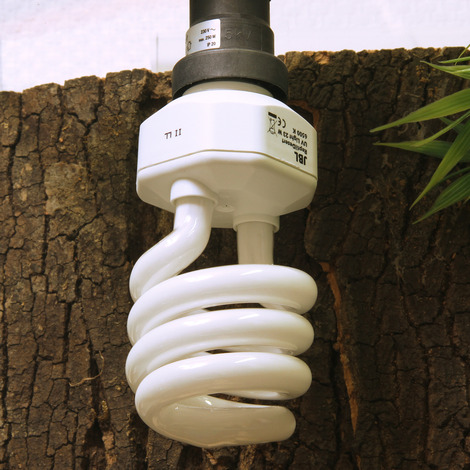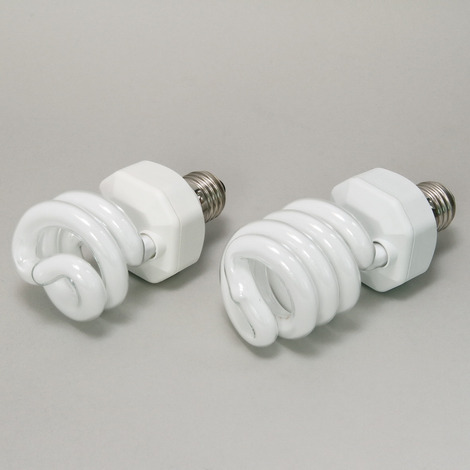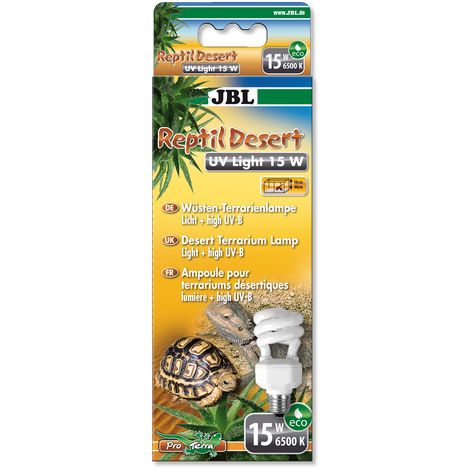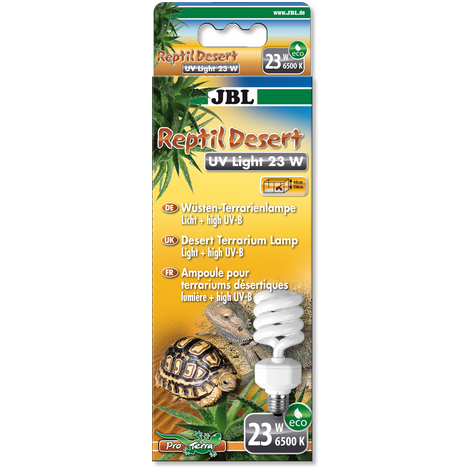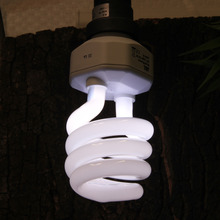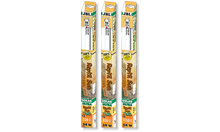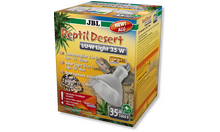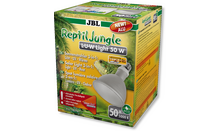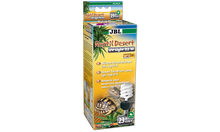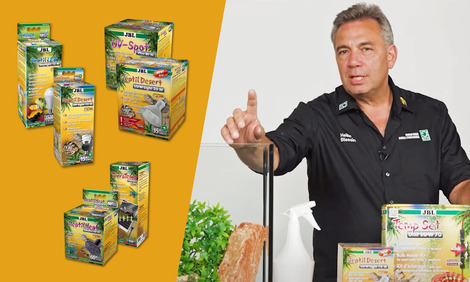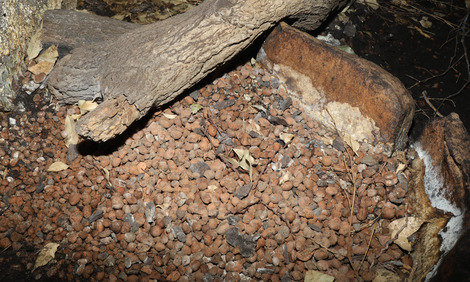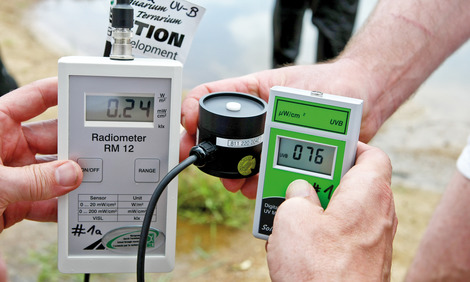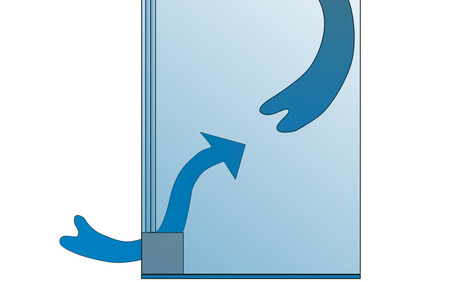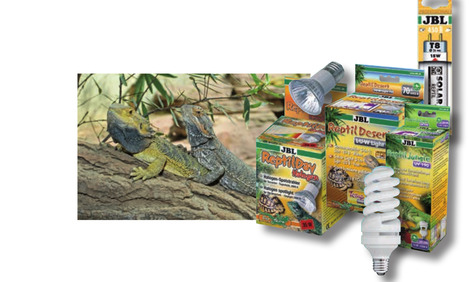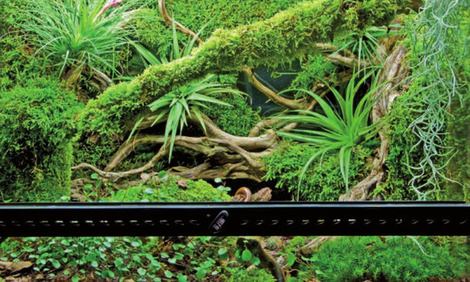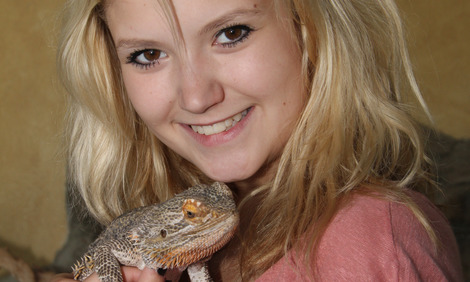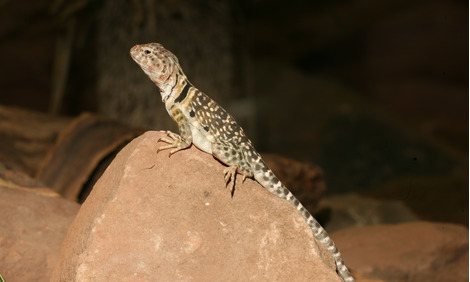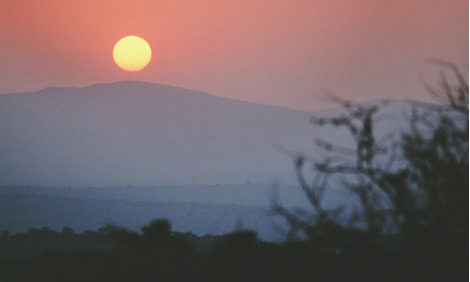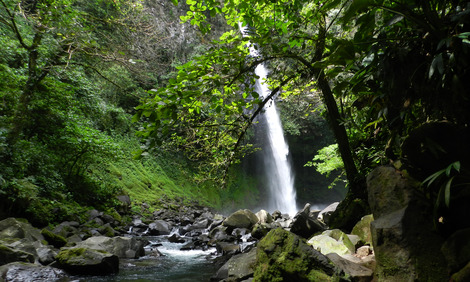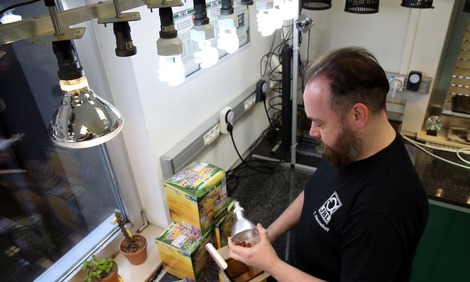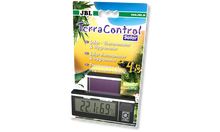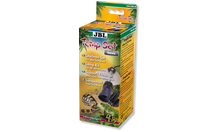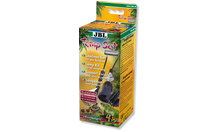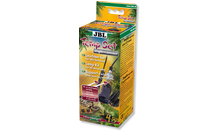Nature as a model
Terrarium animals are cold-blooded animals, which are strongly dependent on light, particularly on the quality and intensity of the light. Activity, food intake, digestion or rest phases are influenced by the change of day and night and the intensity of light. Depending on the light source, there are differences in output and quality of the light.
The right light for your terrarium
The terrarium lamp ReptilDesert UV is especially suited for bearded dragons, tortoises and spiny-tailed agamas.
Species-appropriate UV supply
UV-A promotes the activity, the appetite and the species-specific reproductive behaviour.
JBL ReptilDesert UV Light
Energy-saving lamp for desert terrariums
ReptilDesert UV light
- Compact lamp with high UV-A and UV-B proportions for desert terrariums and 6500 Kelvin for light conditions modelled on nature
- For a species-specific care of bearded dragons, tortoises and spiny-tailed agamas
- Species-appropriate UV supply: facilitates activity, appetite and species-specific reproductive behaviour through UV-A, ideal calcium metabolism thanks to UV-B
- Recommended distance to the animal: 5 to 8 cm with a daily irradiation time of 8-10 hours
- Package contents: compact lamp, ReptilDesert
-
Archive
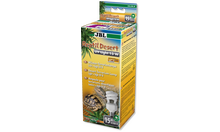 Performance:15 WSocket:E27
Performance:15 WSocket:E27 -
Archive
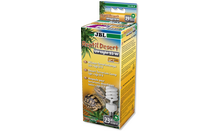 Performance:23 WSocket:E27
Performance:23 WSocket:E27

